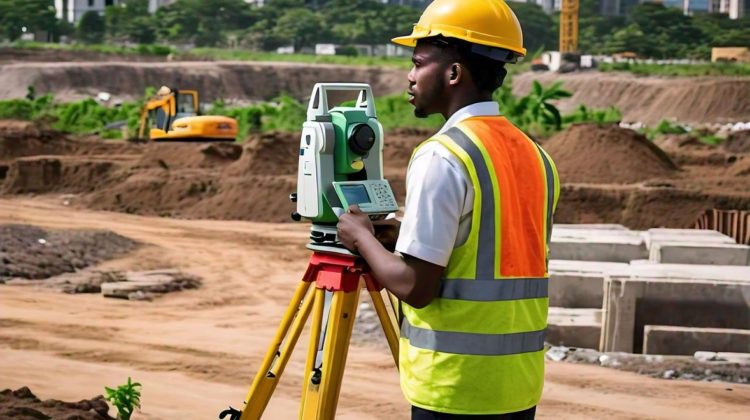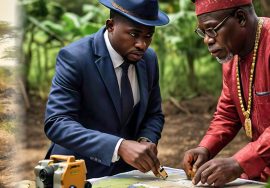
The Role of Surveyors in Sustainable Urban Development
As urban areas in Nigeria expand rapidly, sustainable development practices have become essential to managing growth. Surveyors play a critical role in this effort, providing the accurate data needed to plan and build cities that are safe, functional, and environmentally responsible. This post explores the invaluable contributions surveyors make to sustainable urban development, emphasizing the need for precise measurements, boundary definitions, and planning insights.
The Growing Need for Sustainable Urban Development
Nigeria’s population is expected to exceed 400 million by 2050, with a significant portion of that growth concentrated in cities. Urbanization at this pace can strain infrastructure, lead to environmental degradation, and create challenges in housing, transportation, and sanitation. Sustainable urban development addresses these challenges by creating urban environments that balance economic, social, and environmental needs.
How Surveyors Contribute to Sustainable Urban Planning
Surveyors are key players in the urban planning process. Their work provides the foundation for city development by mapping land use, defining boundaries, and identifying topographical features. Here’s a closer look at how their role supports sustainable development:
- Accurate Land Measurements and Boundaries
- Surveyors ensure that land parcels are accurately measured, which is essential for urban zoning and infrastructure planning. By preventing boundary disputes and ensuring land is used efficiently, they enable better land allocation for public spaces, green areas, and essential facilities.
- Infrastructure Planning and Layout
- Surveyors provide the precise data needed to plan roadways, utilities, and other infrastructure in ways that reduce resource usage and environmental impact. For example, careful mapping of waterways can prevent flooding issues, while accurate topographical data can help design drainage systems that mitigate erosion.
- Environmental Conservation and Green Spaces
- Sustainable urban planning often includes dedicated green spaces for recreation and natural habitat conservation. Surveyors help identify suitable locations for parks, forests, and gardens, ensuring that natural features are preserved while meeting the needs of growing communities.
- Risk Mitigation
- Surveyors assess land for potential risks, such as flood zones, landslide-prone areas, and unstable ground. Identifying these risks early in the planning process helps avoid unsafe construction and promotes the development of resilient cities that can withstand environmental challenges.
- Support for Affordable Housing Projects
- By providing accurate data and working with developers, surveyors can help optimize land usage to accommodate affordable housing projects. This supports equitable access to housing and reduces overcrowding, a critical component of sustainable urban development.
- Enabling Smart City Initiatives
- With advances in technology, surveyors are also involved in the development of “smart cities,” where data-driven solutions improve urban living. Using tools like Geographic Information Systems (GIS), surveyors collect, analyze, and share data to help plan efficient, connected, and energy-saving urban infrastructure.
The Challenges Facing Surveyors in Sustainable Development
Surveyors in Nigeria face several challenges, from limited access to the latest technology to regulatory bottlenecks. Urban expansion often happens faster than policies can adapt, leaving surveyors to navigate outdated zoning laws or unclear land ownership records. Additionally, as the demand for sustainable practices increases, surveyors need access to ongoing education and training to stay current with modern tools like drones, GIS, and environmental assessment software.
Opportunities in Sustainable Urban Development for Surveyors
With Nigeria’s focus on sustainable development, surveyors have a unique opportunity to shape the future of cities. Collaborating with urban planners, environmental scientists, and policymakers, surveyors can advocate for efficient, green, and resilient infrastructure that benefits society at large. As new technologies become more accessible, surveyors can harness these tools to provide better, faster, and more precise data to support sustainable city planning.
Conclusion
Sustainable urban development isn’t just about managing today’s urban growth; it’s about building cities that will serve future generations. Surveyors, with their technical expertise and insights, are indispensable in ensuring that Nigeria’s cities are well-planned, efficient, and environmentally conscious. As we move toward a greener future, surveyors will continue to play a vital role in shaping cities that work for everyone.



